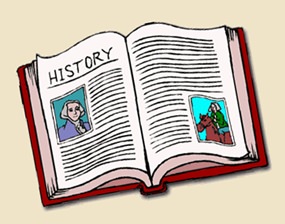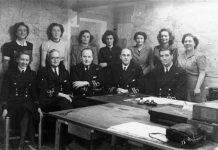Today is Sunday, November 15, the 319th day of 2015. There are 46 days left in the year.
Highlights in history on this date:
1492 – Christopher Columbus notes in his journal the use of tobacco among Indians — the first recorded reference to tobacco by a European.
1577 – Sir Francis Drake of England leaves on a voyage around the world.
1889 – Brazil’s King Pedro II abdicates, and Brazil is proclaimed a republic.
1920 – League of Nations Assembly holds first meeting in Geneva.
1928 – Fascist Grand Council becomes part of Italian constitution.

1939 – U.S. President Franklin Roosevelt lays the cornerstone of the Jefferson Memorial in Washington, D.C.
1940 – The first 75,000 American men are called to Armed Forces duty under peacetime conscription.
1963 – Cuban President Fidel Castro warns the United Nations that his country will shoot down any U.S. military plane entering its airspace on a reconnaissance mission, saying that the United States already verified the withdrawal of Soviet strategic missiles from Cuba by high-seas inspection.
1969 – A Vietnam War protest gathers 250,000 people in Washington, D.C.
1976 – Syrian army takes control of Beirut, ending an 18-month civil war in Lebanon.
1977 – Israel sends formal invitation to Egypt’s President Anwar Sadat to visit Jerusalem and address the Israeli parliament.
1982 – Funeral services are held in Moscow’s Red Square for the late Soviet President Leonid I. Brezhnev.
1985 – Britain and Ireland sign an accord giving Dublin an official consultative role in governing Northern Ireland.
1988 – The Palestine National Council, the legislative body of the PLO, proclaims the establishment of an independent Palestinian state at the close of a four-day conference in Algiers.
1991 – The U.N. Environment Program reports worldwide production and use of chemicals believed to cause erosion of the ozone layer has declined 40 percent over the last five years.
1992 – Shining Path rebels detonate two bombs in Lima, Peru, wounding 10 people.
1993 – Gunmen in Lebanon kill a senior aide of Palestinian leader Yasser Arafat.
1997 – Russian President Boris Yeltsin fires two cabinet ministers after it is revealed that Anatoly Chubais, Russia’s leading economic reformer, took money for a book from a financial institution.
1998 – U.S. President Bill Clinton announces that Iraq has “backed down” and has promised to cooperate unconditionally with U.N. weapons inspectors.
2001 – A judge rules that Britain has no laws governing human cloning, despite Parliament’s attempt to make it the first nation to permit and regulate research using cloned embryos.
2003 – Car bombings within minutes of each other at two Jewish synagogues in Istanbul, Turkey, kill at least 25 people and wound more than 300.
2005 – U.N. peacekeepers and gang members trade gunfire in the Cite Soleil slum of the Haitian capital, leaving at least two people dead.
2007 – Cyclone Sidr roars across the southwestern coast of Bangladesh with 150 mph (240 kph) winds killing at least 3,100 people in the deadliest such storm in more than a decade.
2012 – Oil giant BP agrees to plead guilty to a number of criminal charges and pay a record $4.5 billion in a settlement with the U.S. government over the deadly 2010 disaster in the Gulf of Mexico.
2013 – China’s leaders announce the first significant easing of its one-child policy in 30 years and move to abolish its labor camp system, addressing deeply unpopular programs at a time when the Communist party feels increasingly alienated from the public.
2014 – Spain’s navy rams into a Greenpeace dinghy during a protest in the Atlantic Ocean against oil exploration near the Canary Islands.
Today’s Birthdays:
William Pitt, British prime minister (1708-1779); William Herschel, German-born astronomer and discoverer of Uranus (1738-1822); Erwin Rommel, German general (1891-1944); Petula Clark, English popular singer (1932–); Sam Waterston, U.S. actor (1940–); Rachel True, U.S. actress (1966–).
Thought For Today:
In a time of war … the task of news-writers is easy; they have nothing to do but to tell that the battle is expected, and afterward that a battle has been fought, in which we and our friends, whether conquering or conquered, did all, and our enemies did nothing — Samuel Johnson, English critic (1709-1784).
Copyright 2015 The Associated Press. All rights reserved. This material may not be published, broadcast, rewritten or redistributed.




